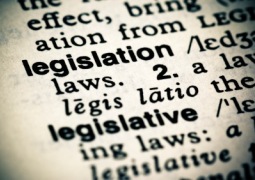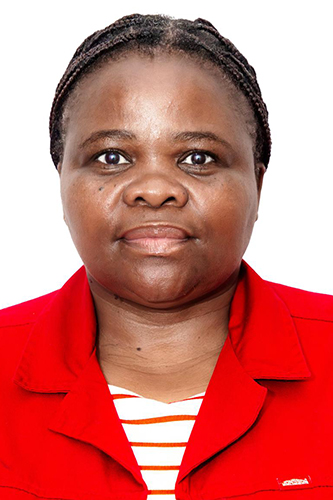
Parliament, Tuesday, 27 February 2024 – The National Council of Provinces (NCOP) has, during its virtual plenary this afternoon, passed the Eskom Debt Relief Amendment Bill, the Divorce Amendment Bill and the Cannabis for Private Purpose Bill. Eskom Debt Relief Amendment Bill: The Eskom Debt Relief Amendment Bill was tabled in Parliament on 1 November 2023 when the Minister of Finance, Mr Enoch Godongwana, presented the 2023 Medium-Term Budget Policy Statement (MTBPS). The Bill aims to amend the Eskom Debt Relief Act of 2023 (which currently provides for interest-free loans) to provide for payment of interest by Eskom on amounts advanced as a loan. The Bill’s new adjustment provides an opportunity to the Minister of Finance to set the rate of interest and should Eskom not comply with the established requirements, the Minister can reduce the amounts paid to this state owned electricity company. Furthermore, the Bill allows the National Treasury to closely monitor Eskom’s compliance with the conditions through a newly formed Eskom Quarterly Monitoring Task Team. Also, the Bill recommends that if Eskom does not fulfil any of the considered measures there can also be a delay in the conversion of the loan, the balance being carried over until 31 March 2026, higher payable interest, and various other related restrained actions for non-compliance. One of the most noteworthy conditions of the loan is that the reduction may not exceed five percent of the total amount for the applicable financial year and must be disclosed in the National Treasury’s next quarterly report to the relevant parliamentary committees. In adopting the Bill, the House has also endorsed that National Treasury, together with Eskom, should - within 60 days of the adoption of the Report by the House - take steps to ensure that the interest charged to Eskom is not passed on to poor and vulnerable consumers and Parliament, through its relevant committees, should continue to monitor the implementation of the Eskom debt relief programme. Divorce Amendment Bill: The Divorce Amendment Bill (B22 of 2023) seeks to amend the Divorce Act, which the Constitutional Court in the Women’s Legal Centre Trust v President of the Republic of South Africa and Others case earlier declared unconstitutional since it excluded Muslim marriages. The non-recognition of Muslim marriages in civil law meant that a person who is married in terms of Islamic law only had no right to approach a court of law for a decree of divorce. This resulted in a failure to safeguard the interests of Muslim women and minor or dependent children of Muslim marriages in the same way as children of other marriages on the dissolution of the marriage. Furthermore, the Act failed to provide for the redistribution of assets and to provide for the forfeiture of patrimonial benefits on the dissolution of the Muslim marriage on the same terms as other dissolved marriages. The Bill seeks to rectify these failures and allow persons in Muslim marriages to get divorced in terms of the civil law. The Bill, however, does not constitute or replace an Islamic divorce and persons, who are in Muslim marriages and wish to be granted a religious divorce, will still need to follow Islamic law. Cannabis for Private Purpose Bill: The Cannabis for Private Purposes Bill was introduced in Parliament on 1 September 2020. This Bill aims to address the Minister for Justice and Constitutional Development and Others v Prince (Prince) judgment, which broadly focused on considerations relating to the right of privacy of adults using cannabis for private purposes. This rewording of the Bill as tabled and deliberated on by the Portfolio Committee on Justice and Correctional Services up until its meeting on 12 September last year, had a narrow adult-centred focus of the private-purpose utilisation of cannabis. Following this meeting, the committee requested permission from the National Assembly to extend the subject of the Bill to include considerations for what is in the best interest of children. This means that the committee had to extend its scope and also look at the use and/or possession of cannabis by a child. According to the Bill, there is a prescribed quantity of cannabis that an adult can cultivate and possess in private and smoking and consumption of cannabis in public is prohibited. In this regard, the Bill expresses that it is an offence to smoke cannabis in a public place, in a vehicle on a public road, or in the immediate presence of any non-consenting adult person/child. The Bill proposes certain limitations for utilisation, possession and cultivation of cannabis particularly in the presence of children. Any person who uses cannabis in a private place in the immediate presence of a child or non-consenting adult person as contemplated in section 2(2)(a), is guilty of an offence and is liable on conviction to a fine not exceeding R2 000. It is also worth noting that, the Cannabis for Private Purpose Bill also does not propose protection and neither suggesting any provision to use cannabis for traditional purposes and it is not at all aimed to condone the use of cannabis for commercial intensions. Also, as afore-mentioned the Bill extremely prohibits children to possess, deal and smoke or consume cannabis. Having considered all the committees’ recommendations, the NCOP has adopted the reports, and the Bills will now be sent to President Cyril Ramaphosa for assent. ISSUED BY THE PARLIAMENT OF THE REPUBLIC OF SOUTH AFRICA Enquiries: Moloto Mothapo

